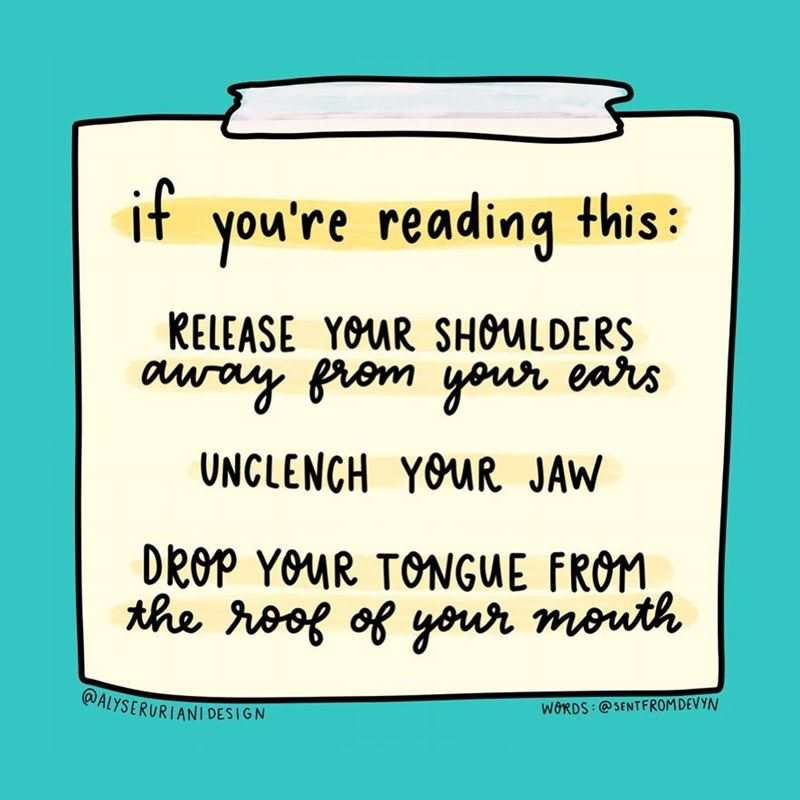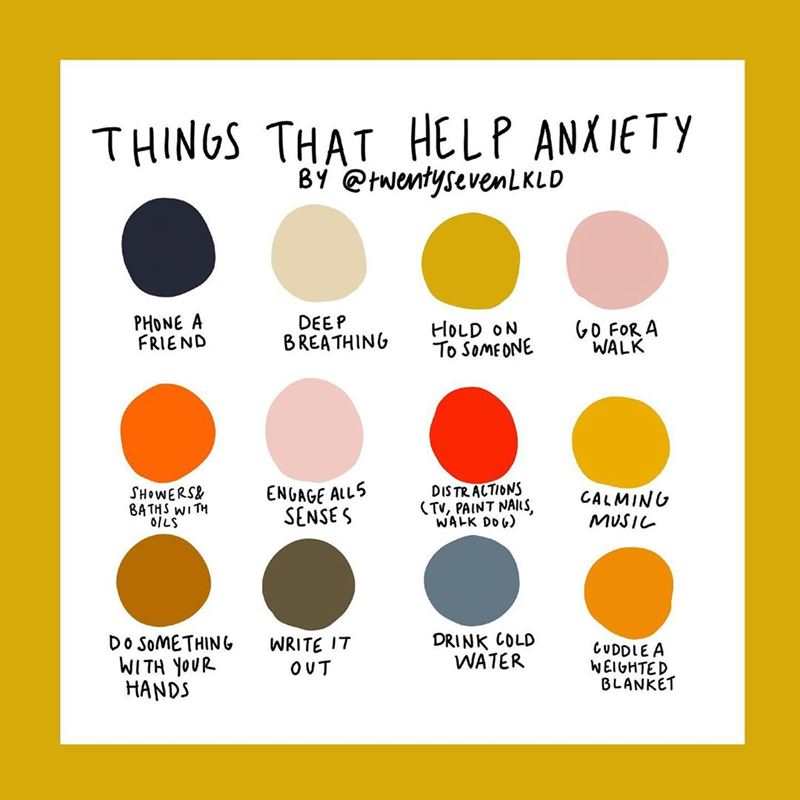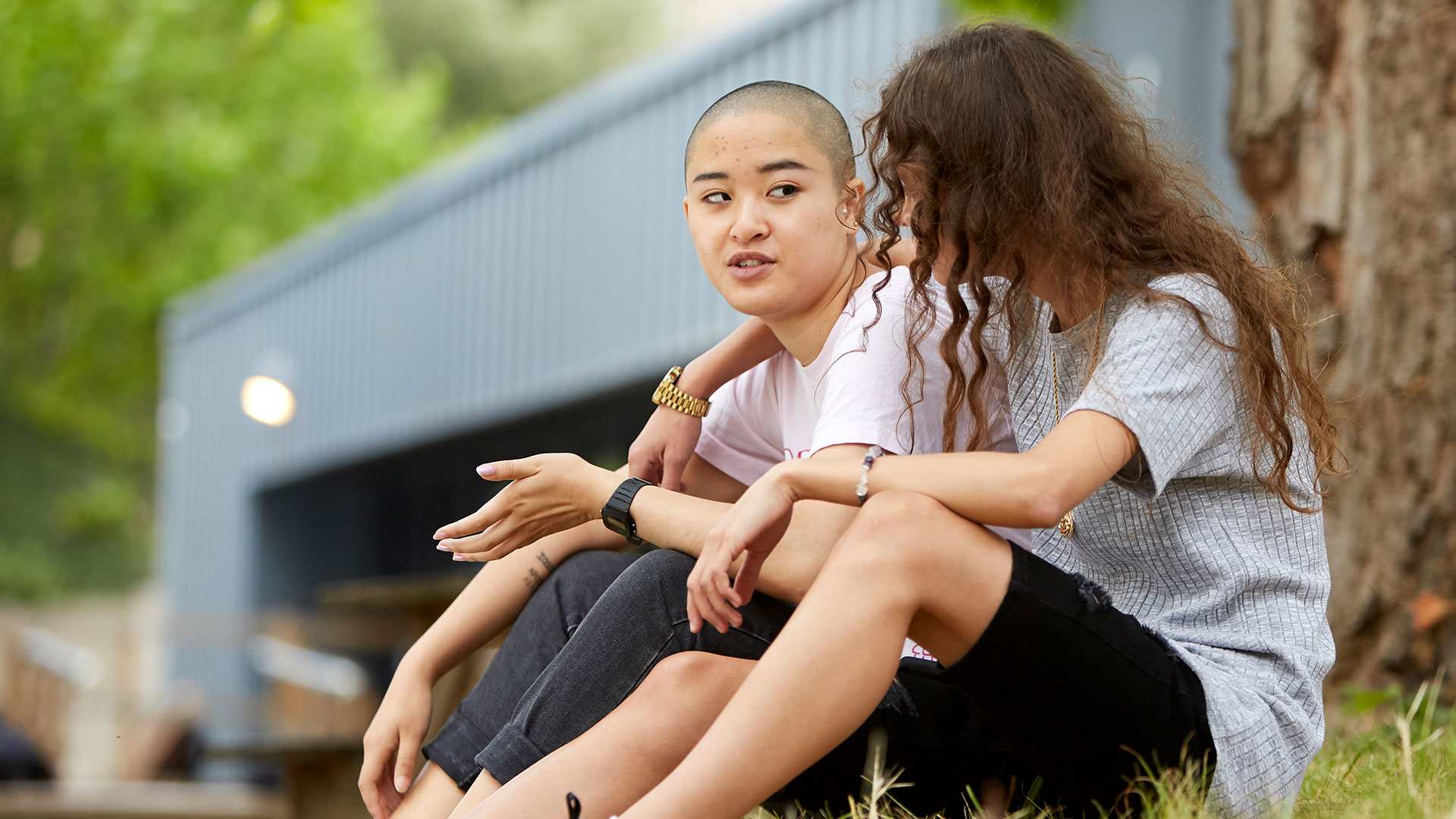What is anxiety?
Anxiety is a normal, human feeling of fear or panic. When we face stressful situations, it can set off our brain’s in-built alarm bell system, which tells us something isn’t right and that we need to deal with it. Our brain wants the difficult situation to go away, so it makes us feel more alert, stops us thinking about other things, and even pumps more blood to our legs to help us run away.
Most of us worry sometimes – about things like friendships or money – and feel anxious when we’re under stress, like at exam time. But afterwards we usually calm down and feel better.
But when you’re not in a stressful situation, and you still feel worried or panicky, that’s when anxiety can become a problem.
Celebrity vlogger Zoe Sugg (Zoella) revealed that she often suffers from anxiety, so she’s had some professional help to learn tools and techniques that help her manage it and live a calmer life.
Just remember that if you're struggling with anxiety or panic attacks, you're not alone.
The symptoms of anxiety

Post credit: @alyseruriandesign. The artwork depicts a white square stuck onto a light blue wall with sellotape. In the white square, highlighted in yellow are the words: 'if you're reading this:'. Underneath that is a list in handwriting, the first one in capitals reads: 'release your shoulders' underneath in lower case handwriting: 'away from your ears'. The second one in capitals reads 'unclench your jaw'. The third one in capitals reads: 'drop your tongue from', underneath in lower case handwriting is: the roof of your mouth'.
You might start out just feeling generally anxious, but if your symptoms get worse or last longer than they should, it could be time to get some support. Symptoms include:
- feeling nervous, on edge, or panicky all the time
- feeling overwhelmed or full of dread
- feeling out of control
- having trouble sleeping
- low appetite
- finding it difficult to concentrate
- feeling tired and grumpy
- heart beating really fast or thinking you’re having a heart attack
- having a dry mouth
- trembling, or having wobbly legs
- feeling faint
- stomach cramps and/or diarrhoea/needing to pee more than usual
- sweating more than usual
- getting very hot
If you experience any of these symptoms above, it doesn’t mean you definitely have an anxiety problem. But if any of them are affecting your everyday life, it’s a good idea to tell someone you trust about how you’re feeling.
What to do about anxiety
Feeling constant anxiety can be a sign that something in your life isn’t right, and you may need some help figuring out what that is.
Talk to your GP
If they think you’re suffering from anxiety, whether mild or severe, they can suggest different types of treatment that might help. They can also offer regular check-ups to see how you’re doing.
Make a self-soothe box
Our Activists explain what a self-soothe box is, how it can help you when you're feeling anxious or panicky, and what they have in theirs.
Treating anxiety
There are ways of treating anxiety. You might try one, or end up using a combination. The important thing is to find what works best for you.
Your GP can tell you where to find local support groups. You can also look online at Anxiety UK for tools, tips and information on support networks.
You may also find it helpful to have some techniques you can use when you're feeling really anxious or having a panic attack. These are techniques that can help you to feel calmer. If you're not sure where to start, have a look at these ideas from our bloggers:
Talking therapy can help you get to the root of what is causing your anxiety. With cognitive behavioural therapy (CBT), you work with a therapist who helps you understand your thoughts and feelings, and then helps you explore ways to change how they affect you. You also learn practical techniques to help you relax and cope better in everyday life.
Tips from our Activists and bloggers on dealing with anxiety
Real stories from young people

A white square sits on a dark yellow background. In the square there are 12 circles of all different colours. At the top of the white square it reads: things that help anxiety. Underneath each circle are different tips to help with anxiety. They read: phone a friend, deep breathing, hold on to someone, go for a walk, showers & baths with oils, engage all 5 senses, distractions (TV, paint nails, walk dog), calming music, do something with your hands, write it out, drink cold water, cuddled a weighted blanket.
Read more on anxiety
We have more information, advice and real stories on dealing with anxiety
Where to get help
If anxiety is taking over, you are not alone. Here are some services that can help you get through this.
-
No Panic
Supports people struggling with panic attacks, phobias, obsessive compulsive disorder (OCD) and other anxiety-related issues - and provides support and information for their carers.
Offers a specialist youth helpline for people aged 13-20. The opening hours are 3pm - 6pm, Monday - Friday; 6pm - 8pm, Thursdays and Saturdays.
Call 01952 680835 for a recorded breathing exercise to help you through a panic attack (available 24/7).
Information about call costs here.
- Opening times:
- 10am - 10pm, 365 days a year
-
Childline
If you’re under 19 you can confidentially call, chat online or email about any problem big or small.
Sign up for a free Childline locker (real name or email address not needed) to use their free 1-2-1 counsellor chat and email support service.
Can provide a BSL interpreter if you are deaf or hearing-impaired.
Hosts online message boards where you can share your experiences, have fun and get support from other young people in similar situations.
- Opening times:
- 24/7
-
The Mix
Offers support to anyone under 25 about anything that’s troubling them.
Email support available via their online contact form.
Free 1-2-1 webchat service available.
Free short-term counselling service available.
- Opening times:
- 3pm - 12am, seven days a week
-
OCD Action
Offers support and information to anybody affected by obsessive compulsive disorder (OCD).
- Opening times:
- 9:30am - 8pm, Monday - Friday
-
Student Minds
Supports students to look after their mental health by providing information and advice.
They also provide details about local services offered by universities and information on how you can access support group programmes.
You can call or email for more information (this is not a helpline).




